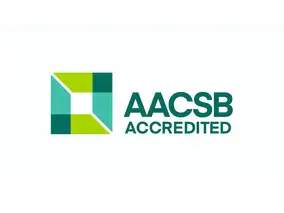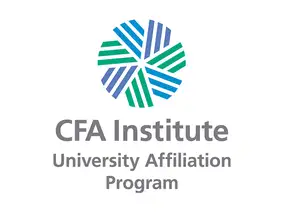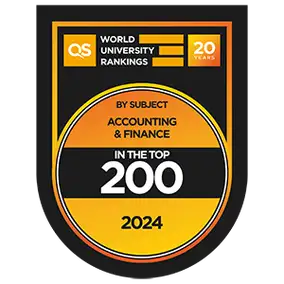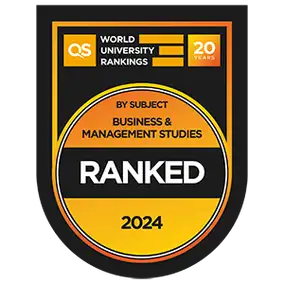Type of qualification
Level of study
Once you’ve graduated with a bachelor’s degree – or have equal experience – you can study at the postgraduate level. Doctoral qualifications require additional entry requirements.
Our courses follow the New Zealand Qualification Framework (NZQF) levels.
Time to complete
International students
International students are not New Zealand citizens or residents.
Study a Master of Finance – MFin
Massey University’s Master of Finance is a detailed, specialised degree. It will give you the skills and knowledge to move to a higher level of seniority in your career.
What will you learn?
Your study will focus on finance, but help you put this specialty into the context of other business disciplines.
This qualification has a focus on real-world learning – you can utilise our relationships with industry to draw on your own work experience. You will also learn the application of techniques in environments like our Trading and Investment Rooms – the first of their kind in New Zealand.
You will be taught by some of New Zealand's leading finance practitioners and will learn how to apply high-level in-depth research in the workplace.
The Master of Finance will also help develop your oral and written communication skills to the level expected of senior business leaders.
Research-led
Massey University conducts an internationally recognised research programme in economics, finance, banking and property. We are also involved in or lead several renowned finance-related research centres.
Insights
- The 2021Student Experience Survey results for this programme found that all respondents on this programme were satisfied with the teaching they have received, 100% highlighted that teaching staff engaged them actively in learning, and 100% highlighted that the qualification has improved their “ability to solve complex problems”.
- Between 2018 and 2021 the average number of students enrolled in the programme was 57 (headcount) and across the whole programme, 84% of courses were successfully completed during 2020.
- The 2024 QS World University Ranking by Subject ranks Massey in the top 200 universities worldwide in this subject area.
- The Massey Master of Finance is ranked by 2023 QS (Quacquarelli Symonds) rankings as one of the top 150 Masters in Finance worldwide, #1 in New Zealand, and #6 in Australasia.
A MFin is a good fit if you:
- hold an undergraduate degree in finance
- wish to move up the hierarchy in finance-specific careers.
Entry requirements
Admission to Massey
All students must meet university entrance requirements to be admitted to the University.
Specific requirements
To enter the Master of Finance you will have been awarded or qualified for a relevant bachelor’s degree or equivalent qualification, with a minimum C+ grade average in the highest level courses.
If you have a Bachelor of Business Studies with Honours from Massey University, or the equivalent degree of another recognised university, you may apply for credit towards Part One of the qualification.
You will provide copies of all official academic transcripts for studies taken at all universities other than Massey University.
English language requirements
To study this qualification you must meet Massey University's English language standards.
Time limits for Honours, Distinction and Merit
Where your qualification is completed within the stated time limit and to a high standard, you may be able to graduate with Distinction or Merit.
- Look for information under ‘Student Progression’ in the General Regulations for Postgraduate Degrees, Postgraduate Diplomas and Postgraduate Certificates.
- Contact us through the Get advice button on this page if you have any questions.
Prior learning, credit and exemptions
For information on prior learning, exemptions and transfer of credit or other questions:
- review the Recognition of Prior Learning regulations
- contact us through the Get advice button on this page.
English language skills
If you need help with your English language skills before you start university, see our English for Academic Purposes (EAP) courses.
Maximum time limits for completion
There are maximum time limits to complete postgraduate qualifications. If you do not complete within the maximum time, you may be required to re-apply for the qualification if you wish to continue your studies.
Official regulations
To understand what you need to study and must complete to graduate read the official rules and regulations for this qualification.
You should read these together with all other relevant Statutes and Regulations of the University including the General Regulations for Postgraduate Degrees, Postgraduate Diplomas, and Postgraduate Certificates.
Returning students
For returning students, there may be changes to the majors and minors available and the courses you need to take. Go to the section called ‘Transitional Provisions’ in the Regulations to find out more.
In some cases the qualification or specialisation you enrolled in may no longer be taking new enrolments, so may not appear on these web pages. To find information on the regulations for these qualifications go to the Massey University Calendar.
Please contact us through the Get advice button on this page if you have any questions.
Structure of the Master of Finance
You must select either Risk Analytics (professional option) or Financial Analytics and Research (research option).
If you study full-time, you’ll take 120 credits per year or 60 credits per semester.
If you have passed 125330 Advanced Business Finance or an equivalent course in your undergraduate degree, you should not choose 125700 Managerial Finance. You should take the other Part 1 Subject courses. You will be required to take 125785 Research and Analytics in Economics and Finance in your first semester of study.
For progression from Part One to Part Two for the Master of Finance (Risk Analytics) (professional option), you must have achieved a minimum C+ grade average in the first 60 credits of study in Part One.
For progression from Part One to Part Two for the Master of Finance (Financial Analytics and Research) (research option), you must achieve a minimum B grade average in the first 60 credits of study, including a B grade for the course 125785.
If you have a Bachelor of Business Studies with Honours, or the equivalent degree of another recognised university, you may apply for credit towards Part One of the qualification.
If you wish to complete a more in-depth master’s research project you may extend your degree out to 240 credits.
Courses and specialisations
Key terms
- Courses
- Each qualification has its own specific set of courses. Some universities call these papers. You enrol in courses after you get accepted into Massey.
- Course code
- Each course is numbered using 6 digits. The fourth number shows the level of the course. For example, in course 219206, the fourth number is a 2, so it is a 200-level course (usually studied in the second year of full-time study).
- Credits
- Each course is worth a number of credits. You combine courses (credits) to meet the total number of credits needed for your qualification.
- Specialisations
- Some qualifications let you choose what subject you'd like to specialise in. Your major or endorsement is what you will take the majority of your courses in.
Credit summary
180 credits
Risk Analytics – Professional option
- Part One compulsory courses – 60 credits
- Part One courses selected from the Schedule – 60 credits
- Part Two compulsory courses – 60 credits
Financial Analytics and Research - Research option
- Part One compulsory course – 30 credits
- Part One courses selected from the Schedule – 90 credits
- Part Two research report – 60 credits
Advanced entry: Those who have already completed specified qualifications in advance of the minimum entry requirements and have been granted credit for it, may be able to complete this degree in 60 - 120 credits.
This is a parts-based qualification. This means there are regulations around your completion of Part One before progressing to Part Two, etc.
Course planning key
- Prerequisites
- Courses that need to be completed before moving onto a course at the next level. For example, a lot of 200-level courses have 100-level prerequisite courses.
- Corequisites
- Courses that must be completed at the same time as another course are known as corequisite courses.
- Restrictions
- Some courses are restricted against each other because their content is similar. This means you can only choose one of the offered courses to study and credit to your qualification.
Subjects
Some qualifications let you choose what subject you'd like to specialise in. Your major or endorsement is what you will take the majority of your courses in.
Financial Analytics and Research
Massey’s Master of Finance (Financial Analytics and Research) combines the study of advanced finance theory and research to complete the qualification.
Risk Analytics
Massey’s Master of Finance (Risk Analytics) combines the study of advanced finance theory and completes the qualification with professional inquiry.
Fees and scholarships
Fees, student loans and free fees scheme
Your tuition fees may be different depending on the courses you choose. Your exact fees will show once you have chosen your courses.
There will also be some compulsory non-tuition fees and for some courses, there may also be charges for things such as study resources, software, trips and contact workshops.
- Get an estimate of the tuition fees for your qualification
- View a list of non-tuition fees that may be payable
Already know which courses you're going to choose?
You can view fees for the courses that make up your qualification on the course details pages.
Student loans (StudyLink) and Fees Free scheme
You may be eligible for a student loan to help towards paying your fees.
The New Zealand Government offers fees-free tertiary study for eligible domestic students. Find out more about the scheme and your eligibility on the Fees Free website. To use the site's eligibility checking tool, you will need your National Student Number.
Current and returning Massey students can find their National Student Number in the student portal.
- Student loans (StudyLink)
- Fees Free
- Student portal
Scholarship and award opportunities
- Mary Mallon Memorial Scholarship
- Massey University Postgraduate Overseas Research Grant
- Yvonne A M Smith Charitable Trust Postgraduate Scholarship
Fees disclaimer
This information is for estimation purposes only. Actual fees payable will be finalised on confirmation of enrolment. Unless otherwise stated, all fees shown are quoted in New Zealand dollars and include Goods and Services Tax, if any. Before relying on any information on these pages you should also read the University's Disclaimer Notice.
Careers and job opportunities
Earn more
A 2017 Ministry of Education publication The post-study earnings and destinations of young domestic graduates, found that in New Zealand:
- young master’s graduates earn more than one and a half times more than the national median (five years after study)
- earnings and employment rates increase with the level of qualification completed
- five years after completion, the median earnings of young master’s graduates are 15% higher than for those with a bachelor’s degree.
Accreditations and rankings

Association to Advance Collegiate Schools of Business (AACSB)
Massey Business School is rated in the top 5% of global business colleges by AACSB International.

Chartered Financial Analysts Institute (CFA)
Massey University is part of the Chartered Financial Analysts Institute's (CFA's) University Affiliation Programme.

Global Association of Risk Management Professionals (GARP)
Our Master of Finance (Risk Analytics) is accredited with the Global Association of Risk Management Professionals (GARP).

QS Ranking – Accounting and Finance
Massey is ranked by QS (Quacquarelli Symonds) as one of the top 200 universities for accounting and finance.

QS Ranking - Business Management Studies
Massey University is ranked by QS (Quacquarelli Symonds) as one of the top 400 universities for business and management.
Useful planning information

Key information for students
Compare qualifications and academic information across different New Zealand institutions. Learn more on careers.govt.nz
